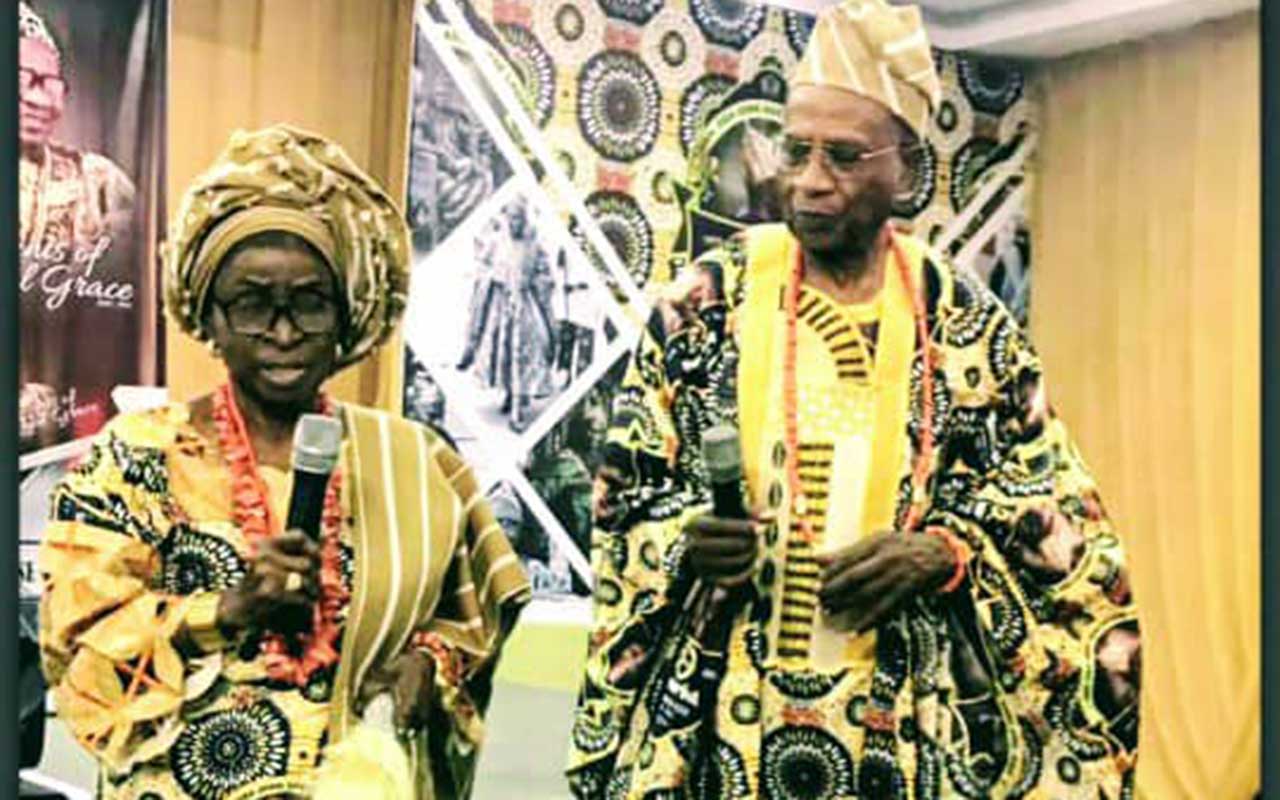Eghoghon Sarah Ifidon’s auteural instincts to emphasize the emotional experience of life in her visual storytelling ranks as one of the most enchanting motifs of her catalogue, especially her latest docu-fiction, The Streets Know My Name.
Based on true events, the documentary film follows the story of a Togolese child trafficking survivor, rescued in Lagos, Vassat Peter, and it highlights his traumas as he attempts to reconnect with his hometown and heritage in Kara, Togo.
Vassat stands brashingly maltreated. “Go and buy me cigar (sic),” the woman shouted. “Ci,” the little boy replied. “Yes, yes! Cigar.”
The documentary begins with Vassat re-enacted as a child undergoing slavery. With a bandaged eye, shaky voice and childish innocence, Vassat is established as a child undergoing their very first prognosis of a wicked world.
The screenplay continues with Vassat wandering away from his captor’s home, and into the rescuing arms of a local police officer who takes him to their precinct. The police officers there assist the city’s social welfare authorities in identifying and rehabilitating him.
Before his eventual return to his hometown in Kara, Vassat (as himself) appears, intermittently, stirring the plot with his experiences navigating the horrors of child trafficking. The candid interviews, combined with the tense drama in the re-enactment, unlock the film’s piercing catharsis.
Navigating Vassat’s identity dilemma — where the rescuing police officers struggle to understand his accent which stalled their investigations; to his inferiority issues, especially when he got mocked by his peers for his eye defects — “The Streets Knows My Name” beams its lens on the harsh mental effects faced by trafficked children as they grow up into adults.
With recent nominations at acclaimed international film festivals, including this year’s International Festival of Red Cross and Health Films; In The Palace film festival; and the African Diaspora Cinema festival, “The Streets Know My Name” documentary film has attracted significant critical interest, for its prudent emo-conscious exploration of child trafficking.
This tender-yet-powerful hearty feel is one of Ifidon’s remarkable motifs, surfacing across her catalogue, especially on her short film “It’s A Grey World (2025)”. Her other short film, “Abike”, which was screened at the British Urban Film Festival and at the Africa International Film Festival (AFRIFF), last year, is another strong example where Ifidon’s raw and provocative storytelling shines.
Primarily, the film’s layered plot, with Ifidon casting her full creative halo on Vassat’s actual struggles unlocks its tightest and siamese pleasure points: drama and dialogue.
Within both parts, Ifidon unites conversations that encourage viewers towards adopting a sense of alertness on possibly abandoned children around them, as well as educating them on how the authorities handle such cases.
For instance, the re-enactments or drama showcase the dangers faced by an abandoned or trafficked child, with wide shots establishing the child versus a large and uncertain environment. The extreme close-ups help reveal strong emotion, notably fear, and concern, especially around Vassat’s rescue. Other sizzling conflict points include the establishing shots of the trafficker during a sale; of the trafficker sending little Vassat to buy cigarettes; Vassat’s momentary brawl through with a teenage mob; and the introductory, among others.
Then, the dialogue flows honestly, with strong melancholic scores soundtracking the conversation. Altogether, the tension heightens throughout the screenplay, evoking strong catharsis and recall.
Also, the film’s visual and spoken language shapes the story’s enjoyability, as Ifidon moves “suspense” and “cadence” like chess pieces in the plot, using aerial cinematography, extreme-close ups, frame-in-frame shots, and silent sequences.
Flipside, the audio grittiness across a few conversations within the documentary’s first act, stand out as the film’s most notable lags.
Still, Ifidon’s storytelling saves the bell, with the film’s entire pace, brilliant cinematography, and captivating denouement (Vassat’s eventual return to Kara), shaping the stoic soul of this story.
The story’s socio-economic key-points are subtly mapped out, with the documentary also highlighting Vassat’s rehabilitation, recovery and return to Kara. Ifidon’s flick reminds this writer of one of this year’s Berlinale’s special picks, The Mölln Letters, as captured by German filmmaker Martina Priessner; both films venerate the reality of emotional trauma and recovery among its subjects.
“This (documentary) might make my parents know that I’m still alive; they might think I’m dead by now,” Vassat exclaims during the interviews, a mixture of worry and hope flushing across his cheeks.
Ifidon’s inclusion of Vassat’s real-life hope casts a comic relief on the strong stretch of trauma that trails his story; and it also validates the subject-artist connection that often births authentic, powerful, and award-winning storytelling.
Eghoghon Sarah Ifidon is a fast-rising filmmaker with over a decade’s experience working across the Nigerian and UK film industries. Her work focuses on amplifying minority voices and social issues, including her most recent titles “It’s A Grey World (2025)”, “The Streets Know My Name (2024)” and “Echoes (2023)”, among others.
She began her journey in Nollywood, in 2019, debuting as a screenwriter and production assistant at Richard Mofe Damijo’s TV/Film production company, RMD Productions. Her work on the “Mr X Family Show” spotlighted her work ethic and she rose through the ranks as one of the most vibrant filmmakers to watch.
With several titles to her name, including “Her Spitting Image (2021)” which earned a nod at the Atlantic Bridge festival, as well as other celebrated works like Land of Filth (2021); The Walls We Build (2022); Nina (2022); Thank You, I Love You (2022); Abike (2023); and Affiong Go Lagos (2023), the talented filmmaker has built a strong repute as one of the torchbearers of progressive African storytelling.
Holding distinctions from the University of Reading (MA, Film), and Babcock University (BSc First Class, Mass Comm), Ifidon is cutting a remarkable trail within her world of lights, lenses and socio-impactful storytelling. She founded and presently manages Iseland Films, sparking a pan-African revolution in developmental filmmaking, one film at a time.






